commentary Commentary
Commentary: Can the rich be caring?
How can we close the empathy gap, to nurture a culture of other-centredness? CEO of the National Volunteer and Philanthropy Centre discusses why the privileged should give.
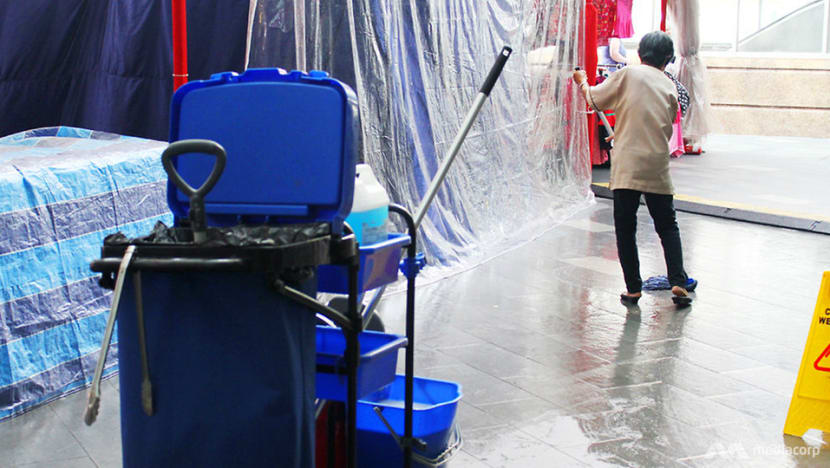
File photo of an elderly cleaner.
SINGAPORE: Growing up, my late grandfather was pivotal in shaping my world views.
A successful businessman, he was honoured by the Emperor of Japan and the President of the United States for his philanthropy.
He believed strongly in the dignity of all. Despite his wealth, he lived in a modest three-bedroom house for most of his life and would chat with the homeless on the streets.
People may forget his consumer electronics and dinnerware businesses, but they will remember his generosity which shaped the city of Los Angeles, and in particular, the Japanese-American community.
Later on, I attended an elite school which offered scholarships to students from developing countries as part of its vision to promote international understanding. We were proud to have talented youth, who embody our school values, be part of the community.
My siblings and I lived comfortable lives. But we had role models – family members, mentors and school leaders – who taught us we were no better or worse than anyone else. We learnt the value of being other-centred. Rather than being served, we were encouraged to use our gifts to serve others.
READ: Three stories on why tackling poverty requires active listening, a commentary
AN EMPATHY GAP
The issue of inequality has generated lively debate in recent months. A question that arises from the debate is whether the rich can be caring. The bigger question is whether the privileged, through poor exposure, suffer from an empathy gap and how can we close this to build a more inclusive society.
NVPC research suggests the well-heeled do serve society. The volunteerism rate among Singapore's private housing residents is 55.6 per cent, above the national average of 35 per cent, according to our 2016 Individual Giving Survey.
Yet there is a sense that well-off Singaporeans still hold indifferent and uncaring attitudes toward the poor.
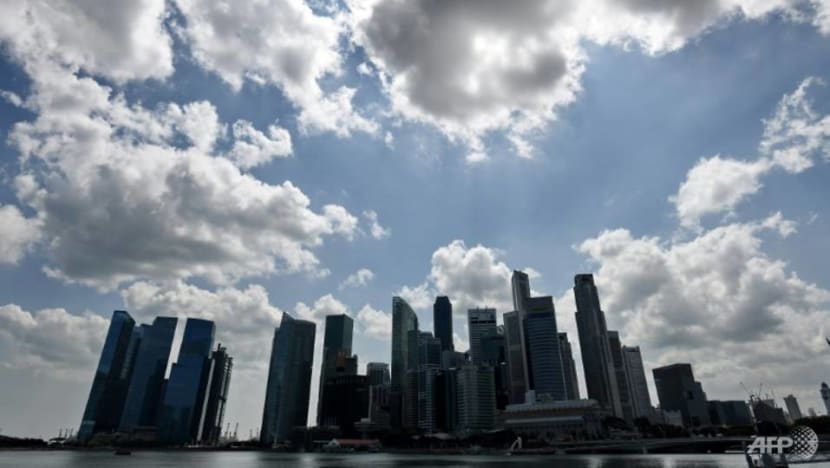
My grandfather's example shows that anyone – rich or poor – can nurture empathy. Compassion is what makes us human. But how often do we exercise this quality?
Our middle and upper classes have multiple options in life, from where they choose to stay, where their kids go to school to what kind of healthcare they want.
But with the privilege of choice comes the risk of ignorance. Some options effectively reduce exposure to society's needs and opportunities to build compassion for others.
It was only when my mother was in the intensive care at Singapore General Hospital when she had her stroke did we experience life with other families who camped out in the halls and waiting rooms for weeks and even months. We got to know them, share, cry and pray with them.
With money, it is easy to live private and routinised lives. Today, with social media algorithms exposing us to similar people and viewpoints, we further risk becoming narrow-minded without realising it.
READ: Amid concerns over dollars and cents, is there no room for social responsibility? A commentary
MINDSETS OF SCARCITY
This sounds surprising, but the rich are often very poor: Poor in spirit and satisfaction, and rich in worry.
Wealth provides choices but doesn’t always bring happiness. A poverty of spirit comes when we view everything with a half-empty lens and nothing is ever enough or good enough.
In a 2016 parliamentary speech, Nominated Member of Parliament Kuik Shiao Yin described how Singapore has a national habit of "scarcity thinking". We have been conditioned to think that resources are scarce in our little red dot, and there is little to go around. Money no enough, time no enough, space no enough, what to do?
When we believe that there isn't enough, the tendency isn't to help but to hoard.
Scarcity thinking is when we think that giving more away means less for us. It shows when we compare and complain of what we do not have, forgetting to give thanks for what we do. Without gratitude, we are truly poor no matter what our financial assets.
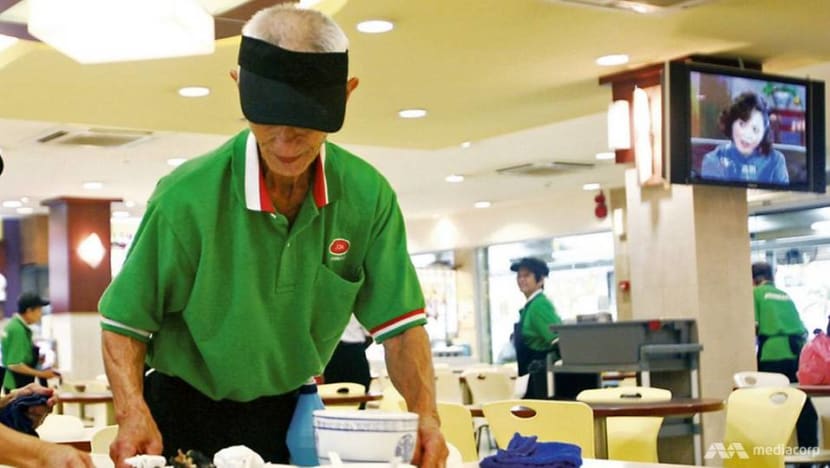
PIONEERS AND LEADERS TODAY
Policies can change the rules by which we live, such as by encouraging mixing in housing estates. But ultimately, society shifts when values shift.
I believe a shared value of other-centredness will keep us strong and together. To do this, we need to enlarge our definition of success to include helping and serving others.
We have rich examples in Singapore's history to draw from - especially businessmen-philanthropists like Tan Kah Kee, Govindasamy Pillai and Tan Tock Seng who stepped up as community leaders and advocated on behalf of others. Our clan associations promoted mutual aid across class borders, believing that everyone should be treated as family.
But beyond these visible examples are many invisible heroes who lived out the spirit of mutual care and common cause; the gotong royong, kampong spirit, as some call it.
I see a resurgence of this in society. Stewardship Asia advocates a spirit of stewardship to public and private companies and family businesses. Honour Singapore champions honour as what has made, and can continue to make, Singapore successful. The Singapore Kindness Movement reminds us greatness is in the power of a kind and gentle spirit.
These efforts build lasting values that complement those of economic progress and achievement.
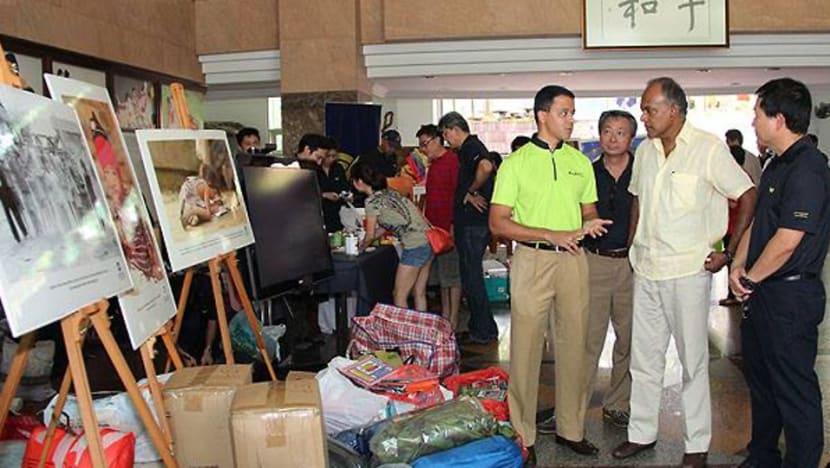
READ: Is charity becoming more about me? That’s not always a bad thing, a commentary
At NVPC, we believe volunteering can build bridges between people and foster empathy. Volunteering is not the strong helping the weak, but a chance for everyone to offer something of themselves, knowing life is not an even playing field. We need humility, a learning mindset and a chance to rediscover or relearn.
In my early days as a mentor, I remember being irritated by a girl for constantly being late for our Saturday morning session. I later discovered she worked two jobs and only came home at 4am. Meeting me at 10am took effort. I was ignorant and I needed to ask to understand.
Years later, that girl is now a breadwinner and top salesperson at her company. My journey with her made me rethink ill-informed assumptions, such as "Some people don't work hard enough" or "You just can't help everyone." Through giving, I received new wisdom.
It is no wonder that NVPC's Individual Giving Survey shows that giving begets more giving. 80 per cent of current volunteers are likely to serve again compared to those who have never volunteered before (21 per cent), and they donate more than five times that of non-volunteers.
We gain something from helping others – a sense of fulfilment, a different perspective, a fresh motivation in life; leading to a virtuous circle.
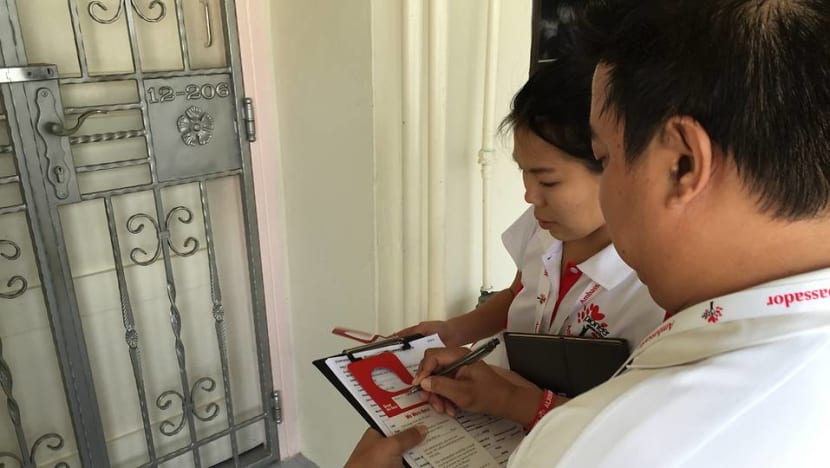
BUILDING TRUE RESILIENCE
We tend to underestimate our ability to give and what strengths we have. In an NVPC quarterly survey of 1,053 Singapore residents this March, 69 per cent agreed that "individuals like themselves" played a major role in giving to society. This was the lowest score, compared to the role we felt the Government (84 per cent), non-profit organisations (80 per cent) and corporations (77 per cent) played.
Is it that Singaporeans think they don't have enough to contribute – the scarcity mindset at play? Or is it a sense that others should take responsibility before us?
In either case, we must build a truly resilient society for all of us, to combat scarcity-mindedness and to focus on the gifts we do have and what is needed.
What is needed is often not complicated. We assume that the poor just need money but sometimes what people truly need is a friend, a defender to stand up for them, or a second chance when things go wrong. Anyone can offer these, which just might be more valuable than money.
If we look beyond the obvious, we may find we already have something of value.
Our car can give a lift to someone in need. Our bilingual skills can help a senior navigate a largely English-language system. Our retirement hours can be used to mentor and befriend someone, or tend a beautiful community garden.
The same applies to organisations that have or do something. How can we share this? I am Vice Chairman at Crest Secondary School, a Normal Technical specialised school in Jurong. We are not an elite school but have a great sports facility. So we share it with the community, in the spirit of being a good neighbour.
Rich or poor, we all have something to give. The more we reach out, the more we will break down barriers, and build an empathetic and truly resilient society that cares for one another.
Melissa Kwee is chief executive officer of the National Volunteer and Philanthropy Centre.














